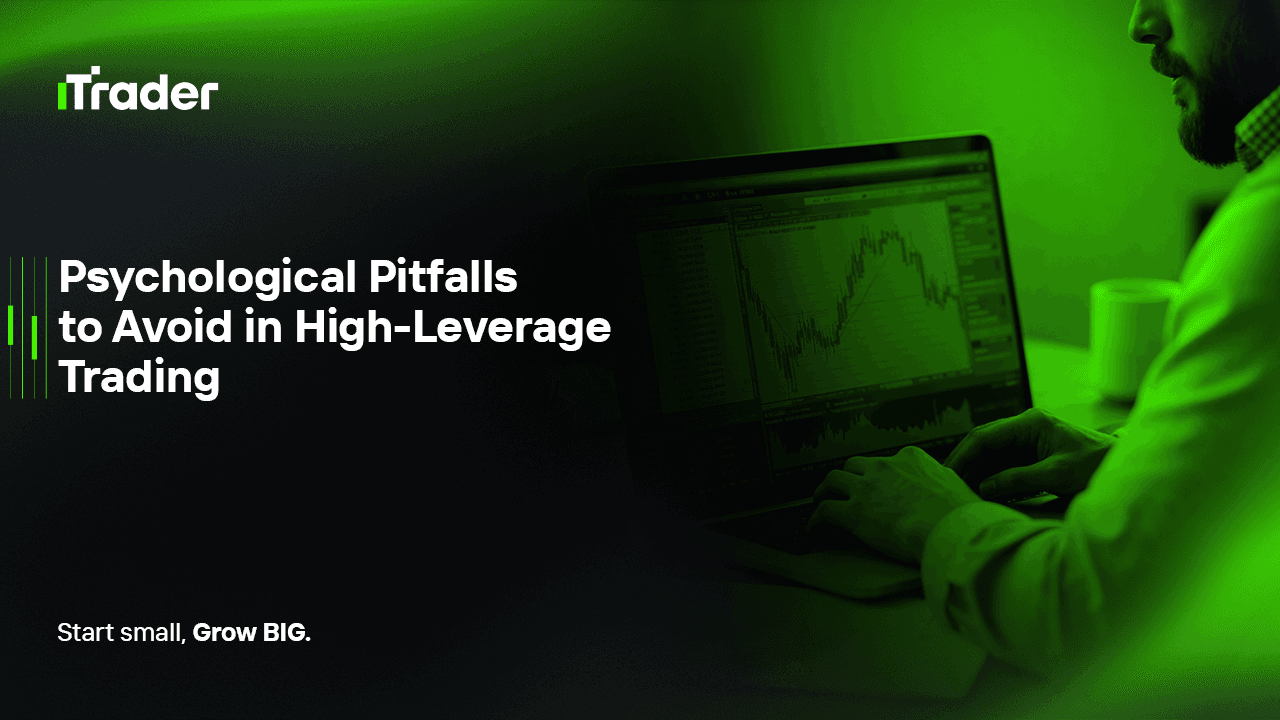2025-07-24
In the forex market, leverage is one of the most powerful tools available to traders. Prop firms often offer leverage ratios as high as 1:50, 1:100, or even 1:500, enabling traders to control large positions with minimal capital. While this creates opportunities for substantial profits, it also magnifies risk. A single mistake can wipe out an entire account. In such environments, technical skill alone is not enough—emotional discipline and self-regulation become paramount.

Why is psychology so important in trading? Because every trading decision—when to enter, when to exit, how much to risk—is deeply intertwined with emotional reactions. Under the pressure of high leverage, rational thinking often gives way to reactive behavior driven by stress, fear, or overconfidence.
AI Summary:
This article explores the common psychological pitfalls that forex prop traders face when trading with high leverage and provides practical methods to overcome them. Topics include loss aversion, overconfidence, revenge trading, and fear of missing out (FOMO). By developing structured emotional control techniques, traders can build long-term consistency and resilience in a highly leveraged environment.
According to Prospect Theory by Kahneman and Tversky, humans are more sensitive to losses than they are to equivalent gains. In trading, this manifests as an unwillingness to close losing trades, even when a stop-loss should have been hit. Traders hope for a reversal and hold onto losing positions far too long. Under high leverage, even a minor price move against you can result in a catastrophic loss if this bias is not managed.
After a series of winning trades, traders may start to believe they “understand” the market or that it somehow conforms to their analysis. This can lead to dangerous behavior—overleveraging, removing stop-losses, or taking impulsive trades with an unjustified sense of certainty. The truth is, no one can predict the market with absolute accuracy, and overconfidence under leverage leads to disproportionate risk.
After taking a loss, traders often experience anger and frustration, prompting them to “get back” at the market. This results in emotionally driven decisions, often with larger position sizes and less planning. In its most extreme form, traders double down to recover their losses quickly—one of the fastest ways to blow up a leveraged account.
Sudden market movements often provoke anxiety in traders who feel they are missing out on an opportunity. FOMO leads to spontaneous trades that deviate from a trader’s plan or system. In a high-leverage environment, a single impulsive trade made out of fear can result in significant losses.
Setting constraints before trading begins is a powerful way to regulate emotions. This includes:
The key is to make decisions while calm—not in the heat of a trade where pressure and emotions cloud judgment.
This refers to automatic stop mechanisms that pause trading during periods of emotional instability. For example:
These rules give the trader space to reset and analyze without pressure, preventing a spiral of emotional decision-making.
Traders should keep a journal not only for trade data but also for psychological states. After each trade, reflect on:
This habit allows traders to identify recurring patterns, understand emotional triggers, and make gradual improvements over time.
Just because a prop firm offers 1:100 or 1:500 leverage does not mean you should use it all. Leverage should match your emotional capacity. Each trader has a unique emotional threshold, and managing risk within your personal limits is essential for long-term sustainability. Leverage is a tool—not a necessity.
Prop trading environments are structured to test performance under strict rules and time constraints. Even if a strategy is solid and the system is backtested, a trader can fail if their psychological resilience is lacking.
Common psychological pressures in prop firms include:
These create a mental environment ripe for emotional decisions. Therefore, prop traders must go beyond technical competence and train themselves for psychological endurance.
Emotional discipline is not about suppressing emotions—it’s about recognizing and managing them effectively. A trader’s psychology consists of habits, tendencies, and a continuous process of self-discovery. Developing it requires daily awareness, practice, and structure. This includes:
Only when a trader gains control over their internal world can they wield leverage in their favor rather than it working against them.
High leverage in the forex market presents powerful opportunities, but it also introduces severe psychological risks. Success in trading is not just about analyzing price or timing entries—it depends largely on a trader’s ability to stay emotionally grounded, follow a system, and recover from mistakes without spiraling into destructive behavior.
Prop traders especially must prioritize emotional regulation as much as they do strategy. When properly managed, psychological resilience becomes a trader’s greatest edge—ensuring that leverage becomes an ally instead of a liability.
© 2025 iTrader Global Limited|公司註冊編號:15962
iTrader Global Limited 註冊於科摩羅聯盟昂儒昂自治島穆扎穆杜 Hamchako,並受科摩羅證券委員會授權與監管。我們的牌照編號為 L15962/ITGL。
iTrader Global Limited 以「iTrader」為商業名稱經營,獲得從事外匯交易活動之授權。公司標誌、商標與網站均為 iTrader Global Limited 之專有財產。
iTrader Global Limited 的其他子公司包括:iTrader Global Pty Ltd,澳洲公司註冊編號(ACN):686 857 198。該公司是 Opheleo Holdings Pty Ltd 的授權代表(澳洲金融服務代表編號:001315037),Opheleo 持有澳洲金融服務執照(AFSL 編號:000224485),註冊地址為:Level 1, 256 Rundle St, Adelaide, SA 5000。
免責聲明:本實體並非本網站所交易金融產品之發行者,亦不對其負責。
風險提示: 差價合約(CFD)交易因槓桿效應具高度資本迅速損失風險,未必適合所有使用者。
參與基金、差價合約及其他高槓桿商品交易,需具備專業知識。
研究顯示,84.01% 的槓桿交易者最終蒙受損失。請務必充分了解相關風險,並在投入資金前確保自身已準備好承擔全部損失的可能性。
iTrader 特此聲明,對任何個人或法人因槓桿交易所導致之風險、損失或其他損害,概不承擔全部責任。
使用限制: iTrader 並不向法律、法規或政策禁止此類活動的國家或地區居民提供網站或服務。如您居住於限制使用本網站或服務之司法管轄區,您有責任自行確保遵守當地法律。